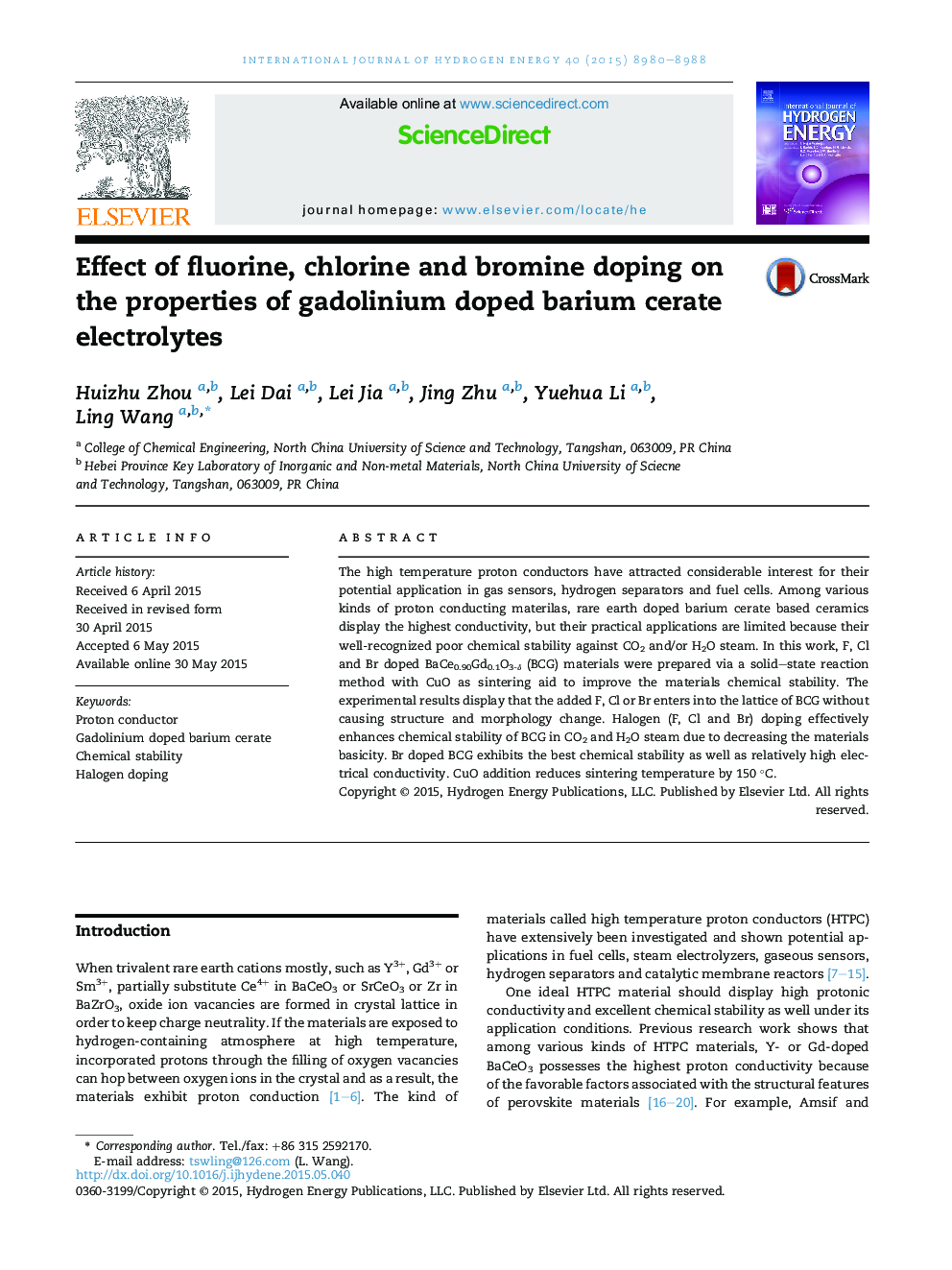| Article ID | Journal | Published Year | Pages | File Type |
|---|---|---|---|---|
| 1275139 | International Journal of Hydrogen Energy | 2015 | 9 Pages |
•Chemical stability of BCG against CO2 is substantially improved by Cl, F, Br doping.•Br doping has little influence on the proton conductivity of BCG, but substantially improves its chemical stability.•The improvement of BCG sinterability can be easily achieved by using CuO as the sintering aid.
The high temperature proton conductors have attracted considerable interest for their potential application in gas sensors, hydrogen separators and fuel cells. Among various kinds of proton conducting materilas, rare earth doped barium cerate based ceramics display the highest conductivity, but their practical applications are limited because their well-recognized poor chemical stability against CO2 and/or H2O steam. In this work, F, Cl and Br doped BaCe0.90Gd0.1O3-δ (BCG) materials were prepared via a solid–state reaction method with CuO as sintering aid to improve the materials chemical stability. The experimental results display that the added F, Cl or Br enters into the lattice of BCG without causing structure and morphology change. Halogen (F, Cl and Br) doping effectively enhances chemical stability of BCG in CO2 and H2O steam due to decreasing the materials basicity. Br doped BCG exhibits the best chemical stability as well as relatively high electrical conductivity. CuO addition reduces sintering temperature by 150 °C.
Graphical abstractF, Cl and Br doped BaCe0.90Gd0.1O3-δ (BCG) are prepared by a solid-state reaction method. The experimental results show that F, Cl and Br enter crystal lattice of BCG without changing the structure and morphology. Halogen doping effectively improves chemical stability of BCG in CO2 and H2O steam. Br doped BCG exhibits the best chemical stability while keeping relatively high proton conductivity. The improved chemical stability is attributed to the decreased basicity by halogen doping.Figure optionsDownload full-size imageDownload as PowerPoint slide
